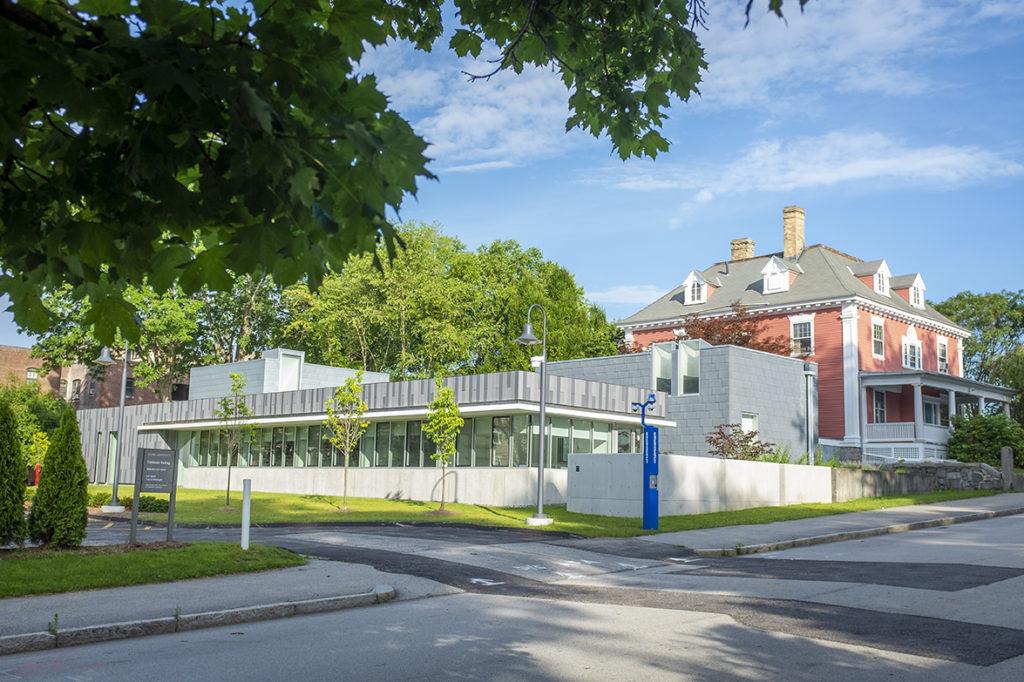Strassler Center to mark 20 years of doctoral training in Holocaust and genocide studies

While historians specializing in the Holocaust did teach at universities two decades ago, no single institution of higher learning was explicitly devoted to doctoral training about the Holocaust and other genocides. After establishing the Rose Professorship, the first-ever endowed professorship of Holocaust History, Clark University — originally founded as an all-graduate institution — launched a small doctoral program. The Strassler Center for Holocaust and Genocide Studies has since earned an international reputation as a leading institute for training historians who study the Holocaust, the Armenian Genocide, and other cases of genocide and mass violence.
Coinciding with this milestone anniversary, the Strassler Center has opened a new building, the Colin-Flug Graduate Study Wing, which provides expanded library facilities and study space for doctoral students. A program celebrating the opening of this building and commemorating 20 years of doctoral education will include an open house and keynote lecture on Thursday, Sept. 19, and a symposium with doctoral alumni on Friday, Sept. 20.
The open house will showcase the Colin-Flug Graduate Study Wing, 11 Hawthorne St., on Thursday, Sept. 19, from 3 to 4 p.m. The Wing was made possible by a lead gift from Clark University trustee Dr. Rebecca Colin and the Simon and Eve Colin Foundation.
Following the open house, founding director and inaugural Rose Professor Debórah Dwork will deliver a keynote lecture, “Americans in Dangerous Territory: Relief and Rescue Operations during the Nazi Years,” at 4:30 p.m. in Tilton Hall, 2nd floor of the Higgins University Center. Professor Thomas Kühne, director of the Strassler Center and Strassler Professor of Holocaust History, will present on the future of Holocaust studies at the Center.
On Friday, Sept. 20, Clark will host “Agency in the Holocaust and Genocide” from 9 a.m. to 4 p.m. in Dana Commons. The symposium, featuring former advisees of Professor Dwork, will explore agency from multiple perspectives including victims, perpetrators, rescue, youth, gender, sexuality, education, religious observance, identity, humanitarianism, and memory. A detailed program is available online.
Strassler Center executive director Mary Jane Rein credits much of the Center’s success to the visionary leadership of Professor Dwork, who enjoyed a long and impressive tenure at Clark. She established the reputation of the Strassler Center as a leading program for preparing Holocaust historians and grew the research and teaching agenda to include the Armenian Genocide and other cases of genocide and mass violence around the globe.
“Professor Dwork is an extraordinary scholar, teacher, and mentor,” said Rein. “Her former advisees welcomed the opportunity to honor her by presenting research on the theme Agency in the Holocaust and Genocide. In groundbreaking scholarship, she has sensitively articulated the choices that inspired individual action or inaction. Our symposium participants pay tribute to their mentor by foregrounding agency as they explore this phenomenon through the lens of their individual research.”
The events are sponsored by the Strassler Center for Holocaust and Genocide Studies. Find more information online or call 508-793-8897; a full list of the Center’s fall events is available here.


